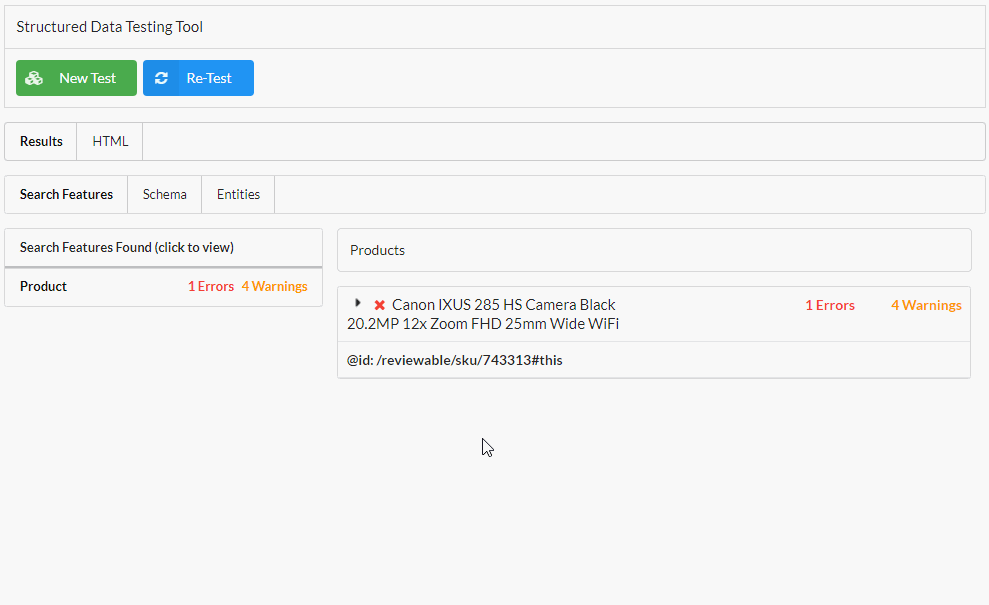Accurate Schema markup and structured data validator
Validating structured data to take advantage of Google's search results features (rich snippets) has historically been a difficult and frustrating task, as the tools at hand have been internally contradictory or inaccurate.
Sitebulb's structured data testing tool is different - it uses ONLY the published documentation to check validation. If a field is required according to the docs, Sitebulb will flag this as an error, even if the page is currently enjoying rich results in the SERPs.
Sitebulb's Schema checker validates against Schema.org documentation AND Google's documentation. It handily aggregates issues so you can understand them at a template level, and allows you to drill down into the data to a page level.
Structured data discovery and reporting
The first time you crawl a website, you often don't know what you are going to find, and this includes the presence (or absence) of structured data.
Sitebulb's intuitive visualizations help you quickly understand exactly what structured data markup is already present on the website, and are ideal for dropping into client presentations. The historical trendlines show changes over time, allowing you to demonstrate improvements as recommendations get implemented.
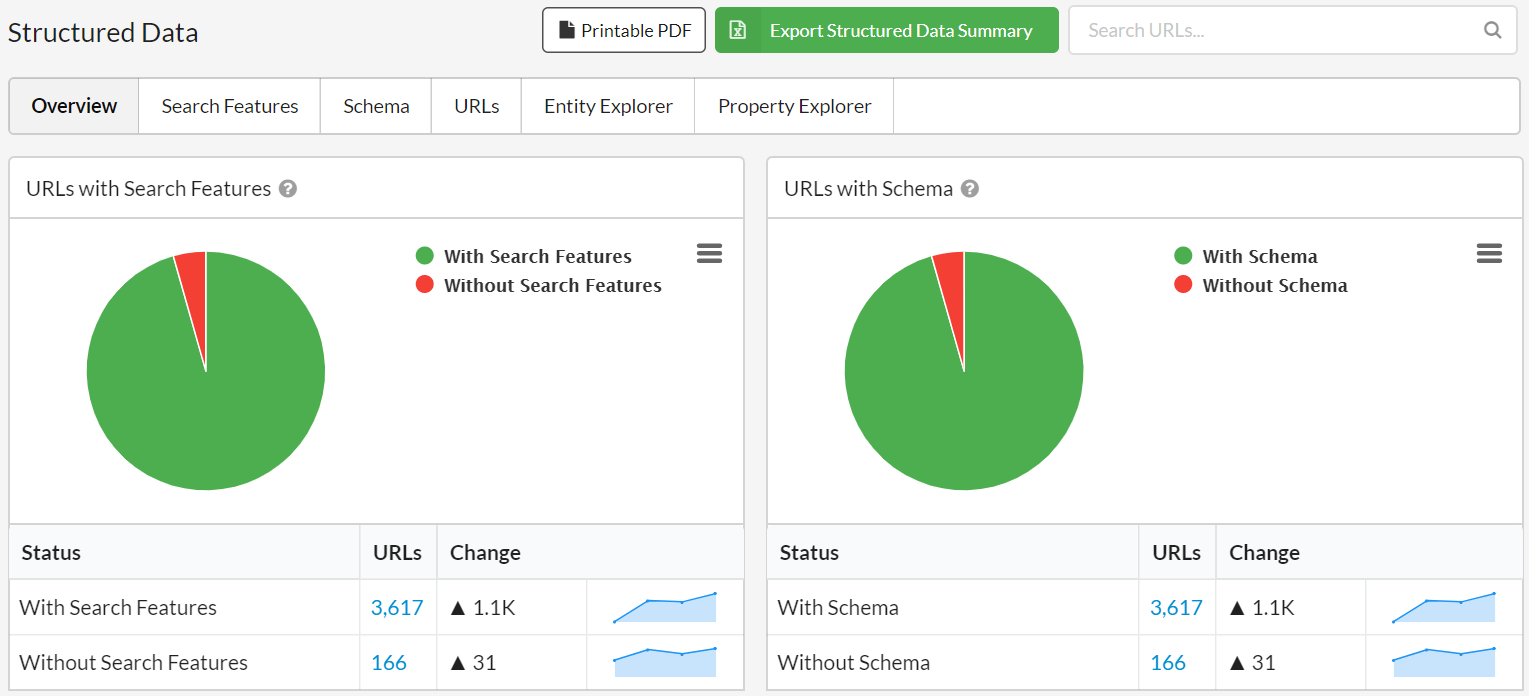
Validation against Google Guidelines
Adding structured data to your webpages makes it easier for search engines to understand what your content is about, and how it relates to other content on the internet. In some cases, the presence of structured data can earn 'rich snippets', where your content is picked out in the search results.
However, if you've ever tried to validate structured data against Google's mercurial toolsets, you no doubt found yourself frustrated by inaccuracies and inconsistencies.
Google themselves deem their documentation as the ultimate source of truth:

And this is exactly what Sitebulb validates against, including handy inline links to the documentation so you know exactly why errors have been flagged.
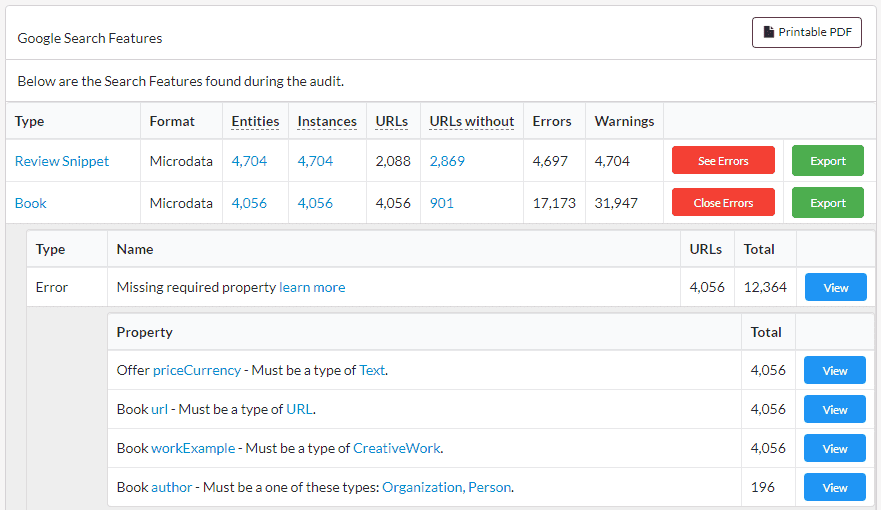
Aggregated Schema issue checks
Structured data issues typically occur on page templates. Identifying and fixing problems at the template level can enable you to resolve problems with a lot of pages all at once.
For this reason, Sitebulb's Schema testing tool aggregates issues across multiple pages, so you can pick out the specific template error and list all the pages affected.

Explore the data
Whilst you probably want to report issues as a template level, you will also probably want to investigate further and pick out some specific examples to send to your clients.
Everything can be drilled down in Sitebulb, so you can check the data in a list:
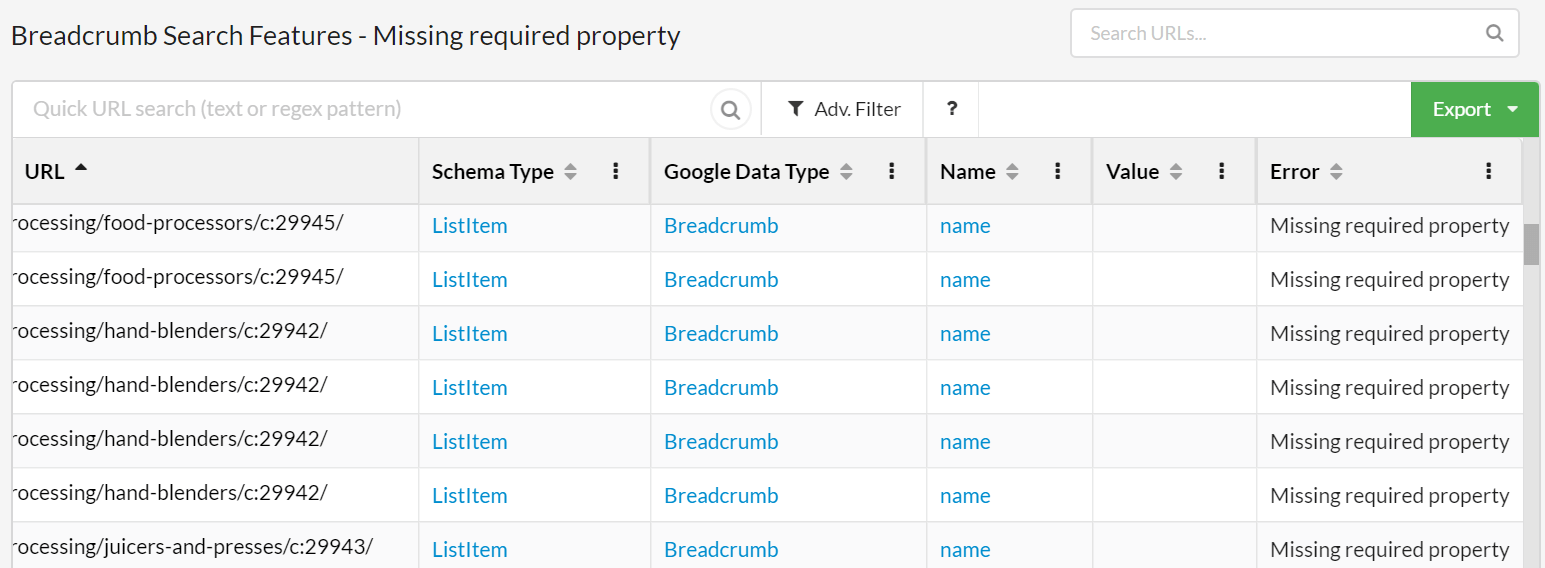
Or you can explore at a URL level and dig into the markup, with all the issues and errors highlighted for all entities found on the page.
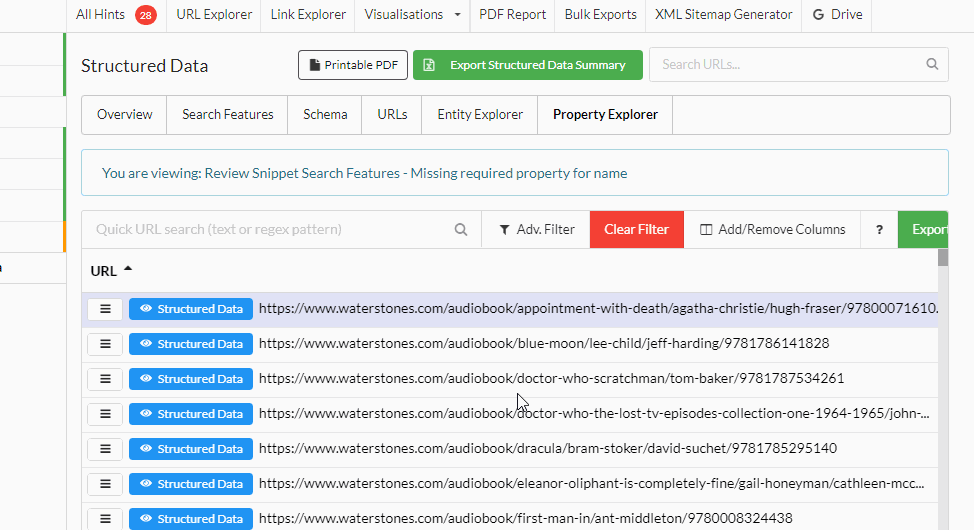
Validate Schema.org markup
Fixing structured data issues in order to satisfy Google's search feature requirement is typically the number 1 thing that SEOs wish to do, but there is a whole ecosystem outside of Google that can make use of structured data.
This is why Sitebulb also collects and checks all of your Schema.org markup, validating against the published Schema.org documentation.
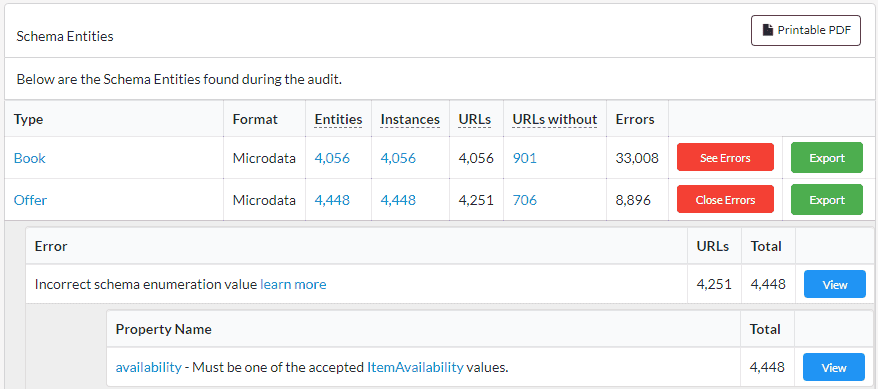
Write and fix structured data markup on the fly
Since Google's own Structured Data Testing Tool was moonlighted, you may be looking for a new method for building and testing your structured data markup. Sitebulb has this covered too.
Use Sitebulb's dedicated Structured Data Testing Tool, which will check and validate structured data on any URL or code snippet you enter, allowing you to quickly iterate and re-check as you go.
